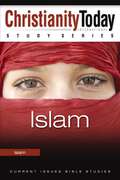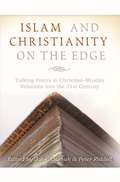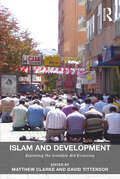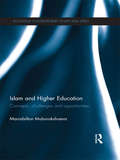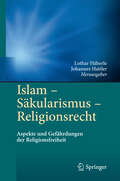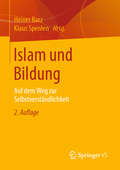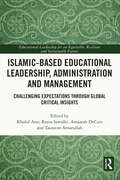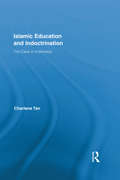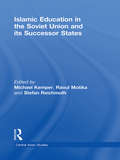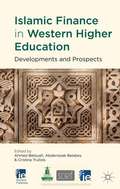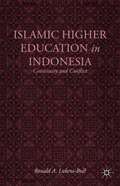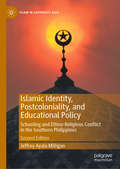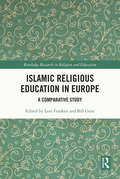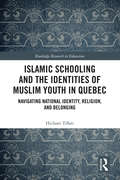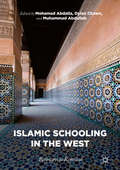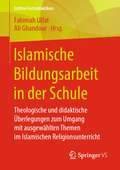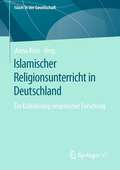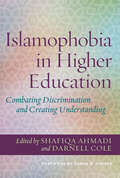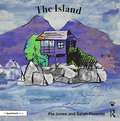- Table View
- List View
Isisekelo Solimi Incwadi Yomfundi 11: UBC Contracted
by N Y Phakathi Z E Sithole J N Mzizi L Q Khumalo N J Zondi• I-CAPS engungqaphambili ididiyelwe yabhalwa ngababhali abawongoti. • Imifanekiso nemisebenzi engungqaphambili ukwenza ngcono imiphumela yabafundi kanye nokubakhuthaza. • Ungqaphambili wezinsiza zikathisha ezonga isikhathi, ukwenza lula ukufundisa zihambisana namakhasi okusebenzela ongawafothokhopha. • Ikhwalithi engungqaphambili = Ukuhlolwa okuyimpumelelo.
Isisekelo Solimi Incwadi Yomfundi 11: UBC Uncontracted
by N Y Phakathi Z E Sithole J N Mzizi L Q Khumalo N J Zondi• I-CAPS engungqaphambili ididiyelwe yabhalwa ngababhali abawongoti. • Imifanekiso nemisebenzi engungqaphambili ukwenza ngcono imiphumela yabafundi kanye nokubakhuthaza. • Ungqaphambili wezinsiza zikathisha ezonga isikhathi, ukwenza lula ukufundisa zihambisana namakhasi okusebenzela ongawafothokhopha. • Ikhwalithi engungqaphambili = Ukuhlolwa okuyimpumelelo.
IsiXhosa Ngumdiliya Ibanga 12 Incwadi yomfundi: UBC Contracted
by M. Mdliva N. SolomonIincwadi zika – IsiXhosa Ngumdiliya luluhlu lweencwadi zolwimi lwesiXhosa esele kukudala zikho ezikolweni, kodwa ngoku zivela sele zibhalwe ngokutsha ngokomgaqo we-CAPS wokufundisa eziklasini, nopasiswe kutsha nje liSebe lezeMfundo yeli lizwe. Ezi ncwadi zisuka kumabanga asezantsi e-Foundation Phase, awe-Intermediate Phase, nawe-Senior Phase. Kuzo zonke ezi klasi zinyuka ezi ncwadi sele ziqulunqwe ngokwalo mgaqo mtsha. Ezi ncwadi ziqulunqwe zanencwadi yabafundi enemisetyenzana kwakunye nencwadi katitshala. Okuqulathwe ngaphakathi kwezi ncwadi kucwangciswe kakuhle ngohlobo oluhlangabezana nomfundi kwinkqubo yokufunda eklasini eqhuba ngokwamanqanaba. Zonke izifundo ziqulunqwe phantsi kwezi zakhono zilandelayo, Ukuphulaphula nokuthetha, Ukufunda nokubukela, Ukubhala nokunikezela, ngelixa imiba yegrama nolwimi ithe ngcembe ukuxovulwa ngelixa ziqhubeka ezi zakhono. Khumbula kaloku ukuba imiba yegrama nolwimi asisiso isifundo esima sithi geqe sodwa, koko siqhubeka sivela ngelixa ziqhubeka izifundo kwiklasi yakho. Ezi ncwadi zilungiselele abo bakwizinga eliphantsi kwizifundo zabo zokuqaphela imiba yolwimi, kanti nabo bakwihlelo eliphakathi ngokwezinga lokuqonda, nabaqonda nangakumbi kwizifundo zabo zolwimi ezilungele eli banga. Lilonke, ezi ncwadi zilungiselelwe ukuze zifikeleleke kuzo zonke iindidi zabafundi. Kungoko zicwangciswe ngohlobo lokuba yonke into icace gca ukuze kube lula kutitshala ukuyisebenzisa kwiklasi yakhe. Inkcazelo yemiba efuna ingcaciso engaphezulu iyafumaneka ilungisiwe yabekwa ngobunono phaya kwincwadi katitshala. Ezi ncwadi ziqulunqwe zalungiswa ngohlobo lokuba ziquke bonke abafundi abakwibanga le-12, zingabi namkhethe. Imisetyenzana ichazwe ngokulula, maxa wambi ikhatshwa yimizekelo, ukuze kube lula ukuyenza. Kukwakho novavanyo olwenziwa ekupheleni komxholo ngamnye ukuqinisekisa ukuba abafundi bakuqondile oko bebefunda ngako, nokuqinisekisa ukuba ikho inkqubela-phambili kwizifundo. Zonke iimpendulo zovavanyo ziyafumaneka kwincwadi katitshala ukuze imxhase kangangoko ngethuba eqhuba izifundo kwiklasi yakhe. Yonwabele ke mfundi nawe titshala, ukuze niphuhliseke nangakumbi kubuchule bokulandela ulwimi lwenu, isiXhosa.
IsiXhosa Ngumdiliya Ibanga 12 Incwadi yomfundi: UBC Uncontracted
by M. Mdliva N. SolomonIincwadi zika – IsiXhosa Ngumdiliya luluhlu lweencwadi zolwimi lwesiXhosa esele kukudala zikho ezikolweni, kodwa ngoku zivela sele zibhalwe ngokutsha ngokomgaqo we-CAPS wokufundisa eziklasini, nopasiswe kutsha nje liSebe lezeMfundo yeli lizwe. Ezi ncwadi zisuka kumabanga asezantsi e-Foundation Phase, awe-Intermediate Phase, nawe-Senior Phase. Kuzo zonke ezi klasi zinyuka ezi ncwadi sele ziqulunqwe ngokwalo mgaqo mtsha. Ezi ncwadi ziqulunqwe zanencwadi yabafundi enemisetyenzana kwakunye nencwadi katitshala. Okuqulathwe ngaphakathi kwezi ncwadi kucwangciswe kakuhle ngohlobo oluhlangabezana nomfundi kwinkqubo yokufunda eklasini eqhuba ngokwamanqanaba. Zonke izifundo ziqulunqwe phantsi kwezi zakhono zilandelayo, Ukuphulaphula nokuthetha, Ukufunda nokubukela, Ukubhala nokunikezela, ngelixa imiba yegrama nolwimi ithe ngcembe ukuxovulwa ngelixa ziqhubeka ezi zakhono. Khumbula kaloku ukuba imiba yegrama nolwimi asisiso isifundo esima sithi geqe sodwa, koko siqhubeka sivela ngelixa ziqhubeka izifundo kwiklasi yakho. Ezi ncwadi zilungiselele abo bakwizinga eliphantsi kwizifundo zabo zokuqaphela imiba yolwimi, kanti nabo bakwihlelo eliphakathi ngokwezinga lokuqonda, nabaqonda nangakumbi kwizifundo zabo zolwimi ezilungele eli banga. Lilonke, ezi ncwadi zilungiselelwe ukuze zifikeleleke kuzo zonke iindidi zabafundi. Kungoko zicwangciswe ngohlobo lokuba yonke into icace gca ukuze kube lula kutitshala ukuyisebenzisa kwiklasi yakhe. Inkcazelo yemiba efuna ingcaciso engaphezulu iyafumaneka ilungisiwe yabekwa ngobunono phaya kwincwadi katitshala. Ezi ncwadi ziqulunqwe zalungiswa ngohlobo lokuba ziquke bonke abafundi abakwibanga le-12, zingabi namkhethe. Imisetyenzana ichazwe ngokulula, maxa wambi ikhatshwa yimizekelo, ukuze kube lula ukuyenza. Kukwakho novavanyo olwenziwa ekupheleni komxholo ngamnye ukuqinisekisa ukuba abafundi bakuqondile oko bebefunda ngako, nokuqinisekisa ukuba ikho inkqubela-phambili kwizifundo. Zonke iimpendulo zovavanyo ziyafumaneka kwincwadi katitshala ukuze imxhase kangangoko ngethuba eqhuba izifundo kwiklasi yakhe. Yonwabele ke mfundi nawe titshala, ukuze niphuhliseke nangakumbi kubuchule bokulandela ulwimi lwenu, isiXhosa.
Islam: An Introduction to Religion, Culture, and History
by James A. BeverleyThe Christian Today Study Series delves into today's vital cultural issues to get to the heart of what these topics mean to you.Each 8-week study is based on articles written by some of today's leading Christian authors and published by the Christianity Today magazines. These remarkable studies will foster deep, authentic, and relevant discussion that will challenge and grow any small group.Islam will take on a variety of topics, such as: Violence & Peace in IslamUnderstanding Islamic BeliefsUnderstanding JihadReaching Out to Muslim Neighbors & FriendsBased on articles by a variety of authors, such as:Stan GuthrieWendy Murray ZobaMiriam Adeney
Islam and Christianity on the Edge: Talking Points in Christian-Muslim Relations into the 21st Century
by John Marks Caroline Cox John Azumah Bernie Power Michael Nazir-Ali Peter Cotterell Derek Tidball Peter Riddell Tony Lane Gordon Nickel Anthony O’mahony Sean Oliver-Dee Gerry Redman Keith Small Charlotte ThorneycroftThe relationship between Christianity and Islam is complex. This collection of essays by scholars and human rights activists engages with some of the most pressing issues in Christian-Muslim relations, addressing matters of theology, the encounter between civilisations and inter-religious affairs. Some of the most controversial and sensitive questions are considered, ranging from sacred text to the politics of multiculturalism. These are key questions for the 21st century, a period when Christianity and Islam are destined to interact more closely than ever before in human history.
Islam and Development: Exploring the Invisible Aid Economy
by Matthew Clarke David TittensorThe study of Islam since the advent of 9/11 has made a significant resurgence. However, much of the work produced since then has tended to focus on the movements that not only provide aid to their fellow Muslims, but also have political and at times violent agendas. This tendency has led to a dearth of research on the wider Muslim aid and development scene. Focusing on the role and impact of Islam and Islamic Faith Based Organisations (FBOs), an arena that has come to be regarded by some as the 'invisible aid economy', Islam and Development considers Islamic theology and its application to development and how Islamic teaching is actualized in case studies of Muslim FBOs. It brings together contributions from the disciplines of theology, sociology, politics and economics, aiming both to raise awareness and to function as a corrective step within the development studies literature.
Islam and Higher Education: Concepts, Challenges and Opportunities (Routledge Contemporary South Asia Series)
by Marodsilton MuborakshoevaThis book is the first study to qualitatively explore the concepts of higher education in Muslim contexts. It examines the different concepts of ‘a university’ and the way they shape practice in Muslim contexts, with a particular focus on the Islamic republic of Pakistan. Contributing to theoretical debates and discussing practical challenges that universities in Muslim countries face, the author analyses seven higher education institutions in Pakistan. She argues that there is a need for institutions to constantly review their mission and aims and objectives in light of the wider economic, political, and socio-cultural and religious development of a society. The book reviews the history of higher education institutions and examines opportunities for some Pakistani universities, to become centres of excellence in the future. This is subject to adequate support from the government, industries, philanthropists and the society at large. In return, these universities would have to cater to the needs of the society, from basic needs in the areas of health and education to science and technology. Islam and Higher Education breaks new grounds in the field of higher education in Muslim contexts and will be of interest to researchers in the fields of comparative education and Islamic Studies.
Islam - Säkularismus - Religionsrecht
by Lothar Häberle Johannes HattlerSeit Gründung der Bundesrepublik ist die religiöse Zusammensetzung der Gesellschaft heterogener und konfliktreicher geworden: Zugenommen hat die Gruppe der Religionslosen, von denen einige aktiv für einen weltanschaulichen Säkularismus eintreten, und die der Muslime unterschiedlichen Bekenntnisses. Dem Islam selbst und seiner komplexen Beziehung zum Verfassungsstaat sind zwei Beiträge gewidmet, ein weiterer säkularistischen (bzw. laizistischen) Positionen. Mehrere Kapitel gehen der Frage nach, wie das staatliche Religionsrecht auf die Herausforderungen Islam und Säkularismus reagieren sollte und ob es einer Neujustierung bedarf. Abschließend werden zwei konträre Urteile des Europäischen Gerichtshofs für Menschenrechte (EGMR) zu einem italienischen Schulkreuz-Fall analysiert.
Islam und Bildung: Auf dem Weg zur Selbstverständlichkeit
by Heiner Barz Klaus SpenlenAusgewiesene Expertinnen und Experten analysieren die vielfältigen Erscheinungsformen muslimischen Glaubens in Deutschland. Neben Dschihadismus und Salafismus widmet sich der Band vor allem auch der schweigenden Mehrheit der Muslime, die ihren Glauben als Bestandteil ihrer Kultur friedlich leben will. Deutlich wird, dass im gelebten Islam heute auch produktive Traditionen mit Betonung auf Bildung und Wissenschaft wirksam werden.
Islamic-Based Educational Leadership, Administration and Management: Challenging Expectations through Global Critical Insights (Educational Leadership for an Equitable, Resilient and Sustainable Future)
by Khalid Arar Rania Sawalhi Amaarah DeCuir Tasneem AmatullahOffering a vital, critical contribution to discussions on current perspectives, practices and assumptions on Islamic education, this book explores the topic through a wide range of diverse perspectives and experiences. This volume challenges current assumptions around what is known as Islamic education and examines issues around educational leadership based on Islamic principles to confront xenophobia and Islamophobia in educational systems, policies and practices. Arguing for a new term to enter the discourse – ‘Islamic-based’ educational leadership – chapters approach the issue through critical reflexivity and diverse perspectives, addressing issues such as the higher education of immigrant students around the globe and the rising tensions in Muslim and non-Muslim populations. Exploring topics ranging from the leverage of leadership to religious education, this text brings together a wide range of case studies, experiences and examinations to shed light to the different approaches of Islamic-based educational leadership, administration and management. This book will support researchers, doctoral students and scholars involved with multicultural education, school leadership and management studies, and education policy and politics more widely to explore new theories and practices that pave the way for future educational systems to meet faith-based demand in the school choice era.
Islamic Education and Indoctrination: The Case in Indonesia (Routledge Research in Education)
by Charlene TanIslamic schools, especially madrasahs, have been viewed as sites of indoctrination for Muslim students and militants. Some educators and parents in the United States have also regarded introductory courses on Islam in some public schools as indoctrinatory. But what do we mean by "indoctrination"? And is Islamic education indoctrinatory? This book critically discusses the concept of indoctrination in the context of Islamic education. It explains that indoctrination occurs when a person holds to a type of beliefs known as control beliefs that result in ideological totalism. Using Indonesia as an illustrative case study, the book expounds on the conditions for an indoctrinatory tradition to exist and thrive. Examples include the Islamic school co-founded by Abu Bakar Ba’asyir and the militant organisation Jemaah Islamiyah. The book further proposes ways to counter and avoid indoctrination through formal, non-formal, and informal education. It argues for the creation and promotion of educative traditions that are underpinned by religious pluralism, strong rationality, and strong autonomy. Examples of such educative Muslim traditions in Indonesia will be highlighted. Combining philosophical inquiry with empirical research, this book is a timely contribution to the study of contemporary and often controversial issues in Islamic education.
Islamic Education in the Soviet Union and Its Successor States (Central Asian Studies)
by Michael Kemper Raoul Motika Stefan ReichmuthThis book provides a comparative history of Islamic education in the Soviet Union and the post-Soviet countries. Case studies on Ukraine, Azerbaijan, Kazakhstan, Uzbekistan, and Tajikistan and on two regions of the Russian Federation, Tatarstan and Daghestan, highlight the importance which Muslim communities in all parts of the Soviet Union attached to their formal and informal institutions of Islamic instruction. New light is shed on the continuity of pre-revolutionary educational traditions – including Jadidist ethics and teaching methods – throughout the New Economic Policy period (1921-1928), on Muslim efforts to maintain their religious schools under Stalinist repression, and on the complete institutional breakdown of the Islamic educational sector by the late 1930s. A second focus of the book is on the remarkable boom of Islamic education in the post-Soviet republics after 1991. Contrary to general assumptions on the overwhelming influence of foreign missionary activities on this revival, this study stresses the primary role of the Soviet Islamic institutions which were developed during and after the Second World War, and of the persisting regional and even international networks of Islamic teachers and muftis. Throughout the book, special attention is paid to the specific regional traditions of Islamic learning and to the teachers’ affiliations with Islamic legal schools and Sufi brotherhoods. The book thus testifies to the astounding dynamics of Islamic education under rapidly changing and oftentimes extremely harsh political conditions.
Islamic Finance in Western Higher Education
by Ahmed Belouafi Abderrazak Belabes Cristina TrullolsThis is the first of its kind in its topical coverage of the developments and prospects of Islamic finance education at Western higher education. Intended to establish itself as a unique reference for academics and researchers this book gives an insight into ethics and values in curricula development at business schools and in finance departments.
Islamic Higher Education In Indonesia
by Ronald A. Lukens-BullThis project looks at the work of the faculty in Indonesia's National Islamic Institutes to address, respond, and prevent the success of radical Islamic discourse and institution of Shari'a law in the school system.
Islamic Identity, Postcoloniality, and Educational Policy: Schooling and Ethno-Religious Conflict in the Southern Philippines (Islam in Southeast Asia)
by Jeffrey Ayala MilliganThis book theorizes a philosophical framework for educational policy and practice in the southern Philippines where decades of religious and political conflict between a minority Muslim community and the Philippine state has plagued the educational and economic development of the region. It offers a critical historical and ethnographic analysis of a century of failed attempts under successive U.S. colonial and independent Philippine governments to deploy education as a tool to mitigate the conflict and assimilate the Muslim minority into the mainstream of Philippine society and examines recent efforts to integrate state and Islamic education before proposing a philosophy of prophetic pragmatism as a more promising framework for educational policy and practice that respects the religious identity and fosters the educational development of Muslim Filipinos. It represents a timely contribution to the search for educational policies and practices more responsive to the needs and religious identities of Muslim communities emerging from conflict, not only in the southern Philippines, but in other international contexts as well.
Islamic Intellectual History in the Seventeenth Century
by Khaled El-RouayhebFor much of the twentieth century, the intellectual life of the Ottoman and Arabic-Islamic world in the seventeenth century was ignored or mischaracterized by historians. Ottomanists typically saw the seventeenth century as marking the end of Ottoman cultural florescence, while modern Arab nationalist historians tended to see it as yet another century of intellectual darkness under Ottoman rule. This book is the first sustained effort at investigating some of the intellectual currents among Ottoman and North African scholars of the early modern period. Examining the intellectual production of the ranks of learned ulema (scholars) through close readings of various treatises, commentaries, and marginalia, Khaled El-Rouayheb argues for a more textured - and text-centered - understanding of the vibrant exchange of ideas and transmission of knowledge across a vast expanse of Ottoman-controlled territory.
Islamic Religious Education in Europe: A Comparative Study (Routledge Research in Religion and Education)
by Leni Franken Bill GentAgainst the backdrop of labour migration and the ongoing refugee crisis, the ways in which Islam is taught and engaged with in educational settings has become a major topic of contention in Europe. Recognising the need for academic engagement around the challenges and benefits of effective Islamic Religious Education (IRE), this volume offers a comparative study of curricula, teaching materials, and teacher education in fourteen European countries, and in doing so, explores local, national, and international complexities of contemporary IRE. Considering the ways in which Islam is taught and represented in state schools, public Islamic schools, and non-confessional classes, Part One of this volume includes chapters which survey the varying degrees to which fourteen European States have adopted IRE into curricula, and considers the impacts of varied teaching models on Muslim populations. Moving beyond individual countries’ approaches to IRE, chapters in Part Two offer multi-disciplinary perspectives – from the hermeneutical-critical to the postcolonial – to address challenges posed by religious teachings on issues such as feminism, human rights, and citizenship, and the ways these are approached in European settings. Given its multi-faceted approach, this book will be an indispensable resource for postgraduate students, scholars, stakeholders and policymakers working at the intersections of religion, education and policy on religious education.
Islamic Schooling and the Identities of Muslim Youth in Quebec: Navigating National Identity, Religion, and Belonging (Routledge Research in Education)
by Hicham TiflatiThis insightful text examines the impact of Islamic schooling on Muslim youth in French-speaking Canada to consider how these institutions influence the formation of students’ cultural, national, ethnic, and religious identities, and their sense of belonging to Quebec and Canada. Through close qualitative analysis of interviews conducted with first- and second-generation students, as well as parents, teachers, and leaders involved in Islamic high schools, this text explores how far institutions succeed in preparing young Muslims to participate in the broader secular society in Quebec and in English-speaking Canada. As well as investigating the historical and contemporary development of Islamic schooling in Canada, and addressing public perceptions of this educational sector, the volume foregrounds the voices of those directly involved in these schools to illustrate first-hand experiences, and the motivations and objectives of those choosing to support or engage in these schools. Overarching themes include citizenship, integration, and the complex interplay of Muslim, Quebecois, and Canadian values. This book will be of great interest to graduate and postgraduate students, researcher scholars and academics in the fields of religion, education, Islamic studies, multicultural education curriculum studies, and faith-based teacher education.
Islamic Schooling in the West: Pathways To Renewal
by Muhammad Abdullah Dylan Chown Mohamad AbdallaThis book presents the views of leading scholars, academics, and educators on the renewal of Islamic schools in the Western context. The book argues that as Islamic schools in Western contexts have negotiated the establishment phase they must next embrace a period of renewal. Renewal relates to a purposeful synthesis of the tradition with contemporary educational practice and greater emphasis on empirical research substantiating best practices in Islamic schools. This renewal must reflect teaching and learning practices consistent with an Islamic worldview and pedagogy. It should also inform, among other aspects, classroom management models, and relevant and contextual Islamic and Arabic studies. This book acquaints the reader with contemporary challenges and opportunities in Islamic schools in the Western context with a focus on Australia.
Islamische Bildungsarbeit in der Schule: Theologische und didaktische Überlegungen zum Umgang mit ausgewählten Themen im Islamischen Religionsunterricht (Edition Fachdidaktiken)
by Fahimah Ulfat Ali GhandourDer Band ermöglicht unterschiedliche Zugänge und Denkkulturen zu verschiedenen theologischen Thematiken, die vordergründig aus einer Bildungsperspektive gedacht werden. Dabei wird die Breite der muslimischen Konzepte in ihrer Pluralität abgedeckt, mit je nach Autorin oder Autor systematischen, philologischen, philosophischen oder historischen Schwerpunktsetzungen, sowie einer pädagogischen Schwerpunktsetzung.
Islamischer Religionsunterricht in Deutschland: Ein Kaleidoskop empirischer Forschung (Islam in der Gesellschaft)
by Anna KörsDas Buch gibt einen breiten und interdisziplinären Überblick zur empirischen Forschung über den islamischen Religionsunterricht in Deutschland zehn Jahre nach Einführung der Islamischen Theologie an deutschen Universitäten und der Ausbildung von islamischen Religionslehrkräften für den schulischen Religionsunterricht. Damit bietet es einen kaleidoskopischen Blick auf die Vielfalt und unterschiedlichen Facetten vorliegender empirischer Erkenntnisse aus Theologie, Religionspädagogik, Islamwissenschaft, Erziehungswissenschaft, Soziologie und verweist zugleich auf zukünftige Forschungsperspektiven und -bedarfe des noch jungen und dynamischen Forschungsfeldes.
Islamophobia in Higher Education: Combating Discrimination and Creating Understanding
by Shafiqa Ahmadi and Darnell ColeWhile Islamophobia was present in our society before 9/11, it has become more pervasive in recent years. This is evidenced by the current social and political climate, hate speech and hate crimes directed at Muslims, and the Supreme Court’s upholding of Presidential Proclamation 645 that effectively bans Muslim immigration from coming to the U.S. What does this mean for Muslim students in college, and indeed for institutions of higher education as they navigate law and policy on the one hand and adhere to their mission of achieving inclusive and equitable educational environments on the other? Two thirds of Muslims in the U.S. are vexed with current policy, and there has been an alarming increase in reports of bigotry and discrimination against them since the 2016 presidential elections. The fear of Islam, in general, and Muslims, specifically, not only compels non-Muslims to differentially treat Muslims, but also trade some of their own civil rights and civil liberties under the guise of national security. To address these issues, institutions require a nuanced understanding of laws and policies that institutionalize Islamophobia, and a greater understanding of the diverse college students that identify as Muslim. This book fills what has been a dearth of research that explores the experiences and navigation of Muslim students in colleges and universities, and addresses the even less studied domain of the experiences of Muslim students who hold multiple marginalized identities -- such as race, ethnicity, and LGBTQ status – as well as the intersection of those identities that may create multiple burdens of oppression and discrimination. This book begins by critically engaging with how current laws and policies institutionalize Islamophobia and affect the intersectionality and diversity within the Muslim community. It includes multidisciplinary voices, such as an international human rights attorney, a civil rights attorney, a criminal law attorney, student affairs practitioners, and research faculty whose work on this marginalized student population is traditionally not recognized within academic settings; and brings the voices of female Muslim scholars to the fore. Each chapter includes a critical analysis of the literature, a legal analysis when appropriate, a set of recommendations for policy and practice, and discussion questions.
The Island: For Children With A Parent Living With Depression (Therapeutic Fairy Tales)
by Pia Jones Sarah PimentaThis beautifully illustrated and sensitive storybook is designed to be used therapeutically by professionals and caregivers supporting children with a parent who is suffering from depression. With engaging, gentle and colourful illustrations that can be used to prompt conversation, it tells the story of a girl who is helped to feel less isolated from her parents’ depression. This book is also available to buy as part of the Therapeutic Fairy Tales set. Therapeutic Fairy Tales is a series of short modern tales dedicated to exploring challenging life situations that might be faced by young children. Each short story is designed to be used by professionals and caregivers as they use stories therapeutically to support children’s mental and emotional health. Other books in the series include: Storybook Manual: An Introduction To Working With Storybooks Therapeutically And Creatively The Night Crossing: A Lullaby For Children On Life's Last Journey The Storm: For Children Growing Through Parent’s Separation Designed to be used with children aged 7+, each story has an accompanying online resource, offering therapeutic prompts and creative exercises to support the practitioner. These resources can also be adapted for wider use with siblings and other family members. The Island – part of the Therapeutic Fairy Tales series – is born out of a creative collaboration between Pia Jones and Sarah Pimenta.
The Island and Storybook Manual: For Children With A Parent Living With Depression (Therapeutic Fairy Tales)
by Pia Jones Sarah PimentaThis beautifully illustrated and sensitive storybook is designed to be used therapeutically by professionals and caregivers supporting children whose parents are going through a separation. With engaging and colourful illustrations that can be used to prompt conversation, it tells the story of a brother and sister, who are helped to come to terms with the new, changing shape of their family. In this bundle, it is accompanied by the Storybook Manual, a resource that has been designed to support practitioners and caregivers with practical and creative ideas on how to use illustrated storybooks therapeutically with children. Key features include: An inviting and sensitively written fairy tale, with a story and illustrations that have been specifically designed to be used with children going through difficult life-events A supporting manual that offers a range of prompts, ideas and activities to encourage children’s imagination and creativity, develop confidence and emotional literacy as well as deepen engagement and understanding of storybooks. Downloadable worksheets to support the story and explore specific themes further This is an invaluable resource for all professionals looking to use stories and images therapeutically with children whose parents are going through a separation. The resources can also be adapted for wider use with siblings and other family members.

